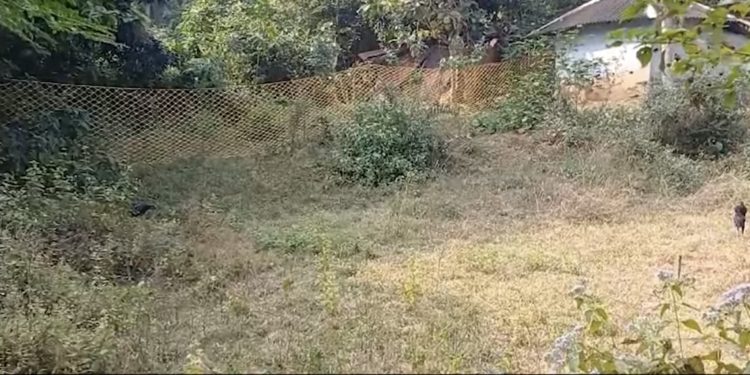Baripada/Kolkata: Apprehending that the marauding tigress ‘Zeenat’ may stray into the Rahamada village, flanked by Raikia and Bharadi hills, the Forest Department of West Bengal has set up nylon nets on three sides of the village. They have also erected fences around the houses close to forests. This has sparked fear among the residents as they apprehend that the animal might stray into the village to hunt goats for food. The forest personnel are planning to capture the big cat as soon as it enters the village. Villagers have stopped venturing into the forest to graze their livestock for fear of the animal. Purulia DFO Anjan Guha said the animal has started returning back on the route it had taken to reach Purulia. STR, field director Prakash Chand Gogineni said that the animal’s return can be assured only after it returns back for 20 km to 30 km. Meanwhile, the tigress has stopped accepting live baits (goats) and was found killing the moving animals. The fully-grown big cat was last seen in the thorny shrubs adjacent to a hill within the Bandwan forest range, “moving a short distance in the past couple of days,” chief conservator of forests S Kulandaivel said. “We have put a nylon net over a 1-sqkm-area to prevent the tigress from entering nearby human settlements and informed local villagers about its presence at the current location for their safety,” he said. He added, “The tigress has moved a short distance in the past two days, and its movement is constantly being tracked with the help of a radio collar.” “Three tranquilising teams have been placed at strategic locations, while three live baits (goats) have been placed along the possible path of the animal,” he said.
Also Read: Ex-PM Atal Bihari Vajpayee has shown India path of development: Odisha CM
However, the big cat has not yet shown any intent to touch the bait despite several attempts. Forest squad members cannot go inside and face the wild animal for fear of attack and must continue the waiting game until it either gets caught or returns to the Similipal habitat. The half-eaten carcass of a goat found in a nearby spot triggered panic among the villagers as the tiger continued to evade forest personnel. The fencing was set up by personnel from Sundarbans Tiger Reserve, who have expertise in the matter, as tiger straying into human habitats from the mangrove forest is more common in villages there, Kulandaivel said. “Teams from Odisha Forest department are also monitoring the movement of Zeenat,” he added. “Smart cameras are being installed at various points in the area to monitor her movement and behaviour,” chief wildlife warden Debal Roy said. The hilly terrain with thorny bushes has made it convenient for Zeenat to escape, with disruptions in the continuous transmission of signals from her radio collar, another forest official said. Zeenat had crossed over to West Bengal from Jharkhand six days ago, and after roaming in Jhargram and Paschim Medinipur districts for three days, she reached Purulia. She has shown no signs of heading back to her original habitat in Similipal so far. The tigress has covered over 100 km, roaming the forests at the tri-junction of West Bengal, Jharkhand, and Odisha.







































